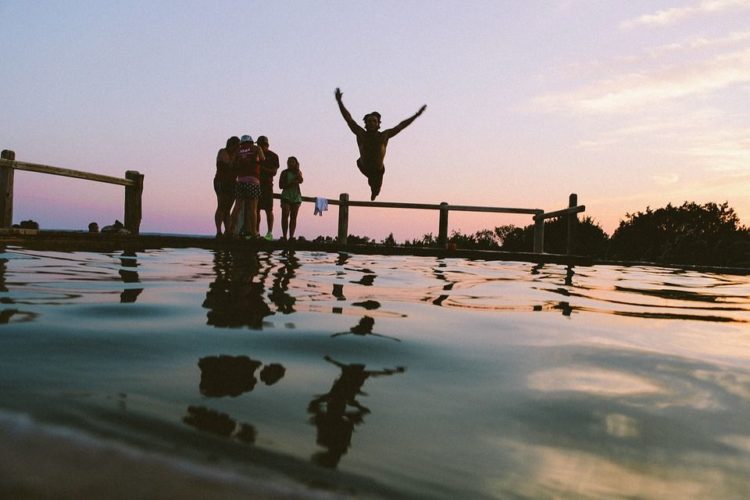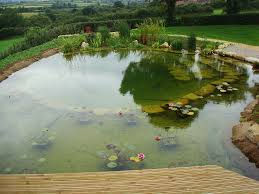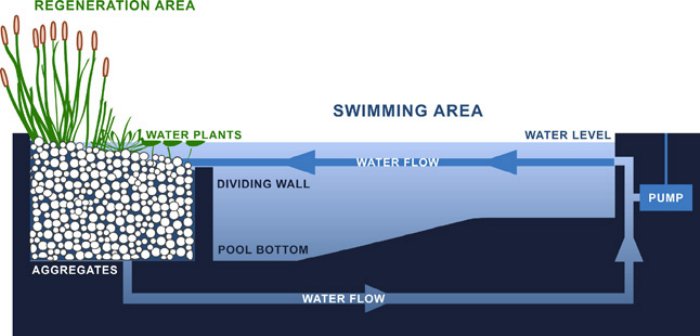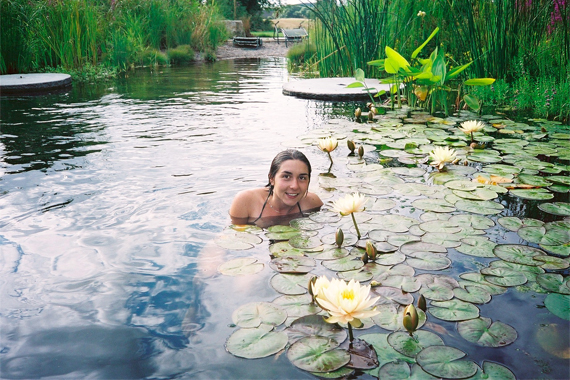Why Natural Swimming Pools Are Awesome!

 There is nothing like taking a cool dip in a pool to combat the hot summer sun. A swimming pool can be a great addition to your home but can be expensive and time consuming to maintain. Harsh chemicals like chlorine and cyanuric acid cause thousands of reported injuries each year. Natural swimming pools are an attractive, eco-friendly, and healthy alternative to chemical pools.
There is nothing like taking a cool dip in a pool to combat the hot summer sun. A swimming pool can be a great addition to your home but can be expensive and time consuming to maintain. Harsh chemicals like chlorine and cyanuric acid cause thousands of reported injuries each year. Natural swimming pools are an attractive, eco-friendly, and healthy alternative to chemical pools.
TABLE OF CONTENTS
Healthy Landscaping
The typical backyard pool is not a thing of beauty. Conventional pools do not work well into the landscape and for those that want to create a sanctuary in their environment, it can be a real detriment. Natural swimming pools are good for the ecosystem, creating a haven for dragonflies, frogs, birds, and other wildlife. These pools can be stunning additions to your property and they function as self maintaining systems, needing only basic maintenance to stay healthy and clean.

Adding native water plants suited to your climate is important. Sedges, rushes, cattails, aquatic irises and primrose are just the beginning. Waterweed and hornwort can be added to boost oxygen levels. The beginning stages of the natural pool are like a virgin garden and can be as creative as you could possibly imagine. Plantings are made in layers of bentonite clay and soil topped with clean gravel. After that beneficial bacteria that breakdown organic matter should establish quickly.
Keeping it Clean
Unlike a traditional pool, natural pools use either aquatic plants, gravel (or both) to filter out biological contaminants. Water is circulated through a protein skimmer with a pump and bubbler, cycling through the rocks and plants which effectively filter the pool. This is typically accomplished with an underwater aeration system, and/or the use of falling water.
A standard system runs about $1,000 but there are ways to do it yourself. These can be designed to use solar energy for circulation at half the cost. The end result is a chemical free ecosystem that is healthy for the environment and swimmers.
The ideal setup to keep the pool naturally sanitized is with half of the pool as plants and gravel and half as swimming area. Fertilizers, primarily phosphorous must be controlled in order to prevent algae growth. An organic garden, free of inorganic fertilizers would be the ideal setting for a natural pool. Be aware of small children or animals who might urinate in the pool and contribute to phosphorous blooms.

A Green Choice
Adding a natural swimming pool to your environment is a better choice for the lifestyle conscious person. With or without professional help, installing a water feature of this magnitude could be almost as enjoyable as spending summers in it.
